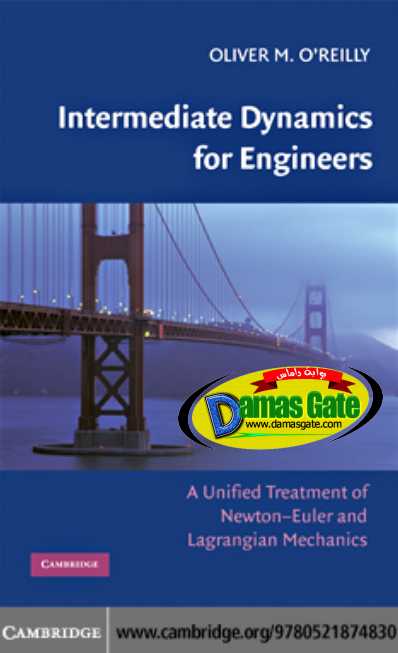Intermediate Dynamics for Engineers - A Unified Treatment of Newton-Euler and Lagrangian Mechanics

Preface
The writing of this book started more than a decade ago when I was first given
the assignment of teaching two courses on rigid body dynamics. One of these
courses featured Lagrange’s equations of motion, and the other featured the
Newton–Euler equations. I had long struggled to resolve these two approaches to
formulating the equations of motion of mechanical systems. Luckily, at this time,
one of my colleagues, Jim Casey, was examining the elegant works [205, 207, 208]
of Synge and his co-workers on this topic. There, he found a partial resolution to
the equivalence of the Lagrangian and Newton–Euler approaches. He then went
further and showed how the governing equations for a rigid body formulated by use
of both approaches were equivalent [27, 28]. Shades of this result could be seen in
an earlier work by Greenwood [79], but Casey’s work established the equivalence
in an unequivocal fashion. As is evident from this book, I subsequently adapted
and expanded on Casey’s treatment in my courses. My treatment of dynamics
presented in this book is also heavily influenced by the texts of Papastavridis [169]
and Rosenberg [182]. It has also benefited from my graduate studies in dynamical
systems at Cornell in the late 1980s. There, under the guidance of Philip Holmes,
Frank Moon, Richard Rand, and Andy Ruina, I was shown how the equations
governing the motion of (often simple) mechanical systems featuring particles and
rigid bodies could display surprisingly rich behavior.
Download
*